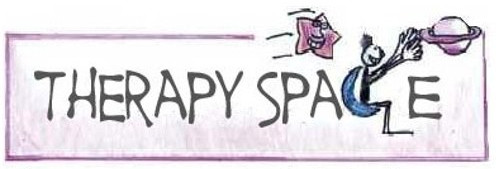Assessments
Early Years Assessment
3 and 4 year old preschool children
Includes: remote home observation, 1.5 hour clinic assessment, summative report and feedback session.
Assessment
4 year old reception children up to 12 years old
Includes: remote home observation, 3 hour clinic assessment, parent session, report and report review meeting. Optional school visit available.
Autism Diagnostic Interview – Revised
Suitable for children ages 3 plus to adults
Therapy Space Bristol Ltd uses the ADI-R assessment. Our assessment is in line with the National Institute for Health and Care Excellence (NICE) guidelines and the diagnosis is made by our highly experienced multidisciplinary team.
Includes: remote home observation, interview with informant (ie. Parent/carer/teacher), ADI-R report, report review meeting.
Combined OT Assessment and ADI-R Interview
Suitable for children 3 to 12 years old
◦ Includes: remote home observation with OT and ADI Practitioner, 3 hour clinic assessment with OT, parent session, report and report review meeting.
◦ Interview with informant (ie. Parent/carer/teacher), ADI-R report, report review meeting.
Parent/Carer Advisory Consultation
Our Advisory Consultation uses a developmental, sensory and trauma sensitive approach to meeting the social and emotional needs of children. It is founded in attachment theory and supports children to become more emotionally resilient and better placed to engage in life and learning.
Therapeutic Support Plans
There are a number of options for treatment following detailed assessment for children aged 12 and under on the professional knowledge and experience of the Occupational Therapist team. The result of the assessment will be a detailed therapeutic support plan for the child within the family. Any of our services require an in depth assessment procedure with liaison with parents, staff and school.We also offer parental support with training to help parents understand the effects of trauma on children’s behaviour and development.
Social and Emotional Regulation Programme
Our package uses a developmental, sensory and trauma sensitive approach to meeting the social and emotional needs of children. It is founded in attachment theory and supports children to become more emotionally resilient and better placed to engage in life and learning.
Through a systematic series of bespoke sessions, we will assess and identify individual sensory, social, and emotional needs, providing positive strategies and interactions to enable both children and parents/carers to overcome barriers. The sessions have a high emphasis on play and the creative arts to address key areas of need, ensuring they are fun, interactive and multi-sensory
Sensory Integration Therapy to Support Motor Coordination
This is often offered when a child performs very poorly on the motor coordination aspects of assessment and would be a weekly one hour sessions where the child works on coordination, balance, core stability and generally explores the environment and becomes more confident from a physical perspective which will in turn allow them to be more confident in themselves at home and school.
Sensory Integration Programme to Support Motor Coordination and Emotional Regulation
Where a child has motor coordination difficulties and needs support in regulating their emotions, sessions of 1 hour and 15 minutes are planned. Emotional regulation work is tailored to meet a child’s individual needs but can include work using ‘Zones of Regulation’ and/or the ‘Just Right State’ using therapy balls and food activities.
Sensory Attachment Intervention (SAI) Programme
Sensory Attachment Intervention was developed by Eadaoin Bhreathnach, Occupational Therapist & Attachment Counsellor, in recognition of the special sensory and attachment needs of children who have suffered trauma. Trauma behaviours may include hyperactivity, impulsivity, aggression, passive avoidance, over compliance, and dissociation. Sensory Attachment Intervention is an eclectic neurobehavioural approach. Practice is based on current neuroscientific research into the effects of trauma on brain functioning. It uses both directive and non-directive interventions for the treatment of trauma. The treatment approach integrates the theories of Sensory Integration, Attachment Classification, and Childhood Trauma.
The Just Right State Programme (10thEdition 2017)
Therapists at Therapy Space Bristol Ltd have been trained by Eadaoin Bhreathnach MSc. Consultant Occupational Therapist & Attachment Counsellor. (Founder of course).
The Just Right State programme looks at the use of sensory activities and foods, to help children learn how to self regulate their emotional states and behaviour. It also uses cartoon characters called ‘The Scared Gang’ which represents the different survival and attachment patterns of behaviour. The different characters tell the children how they react to situations and what each of them does to achieve the “just-right state”. The goal of the programme is to enable children become more emotionally aware of themselves and of others, to give them simple tools to enable them to self regulate and achieve the just right state, whether it is to engage in academic learning, interacting with their peers, or to be able to get a good night’s sleep.
Parent Training Course
We offer support to parents and carers to develop their understanding of the impact of early trauma on a child’s development, behaviour and attachment. This session is a mandatory part of the Sensory Attachment programmes – the ‘Sensory Attachment Intervention’ and ‘Just Right State’ programmes – to be completed by the parents before sessions are started with children.
The session is also helpful for other parents and school staff to develop their awareness and understanding.
Linda Plowden runs the parent course.
The Eye Movement Desensitisation and Reprocessing (EMDR) therapeutic plan
Our senior therapist Linda Plowden has completed the 4 levels of adult Eye Movement Desensitisation and Reprocessing (EMDR) protocol, plus the Attachment informed EMDR and level 1 Children’s EMDR with Susan Darker Smith.
The principles behind EMDR is that our memories are stored in our minds in specific folders and sometimes the traumatic memories become stuck or hidden and EMDR is a way to help reprocess the memories into a less traumatic scary place.
Children’s EMDR uses other techniques such as drawing, using narratives and tapping rather than eye movements.
Please note if you feel that your child needs a different support package, we are happy to discuss and provide costs for an individual package to suit your child’s needs.
